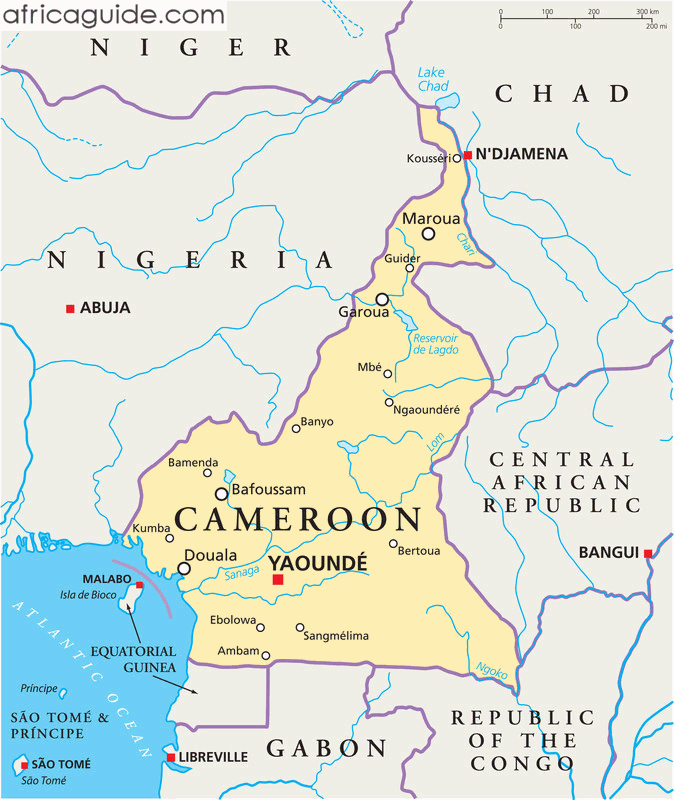A Ghanaian official, the Oti Regional Director of Gender Department Esther Hammond, called on traditional and religious leaders to help stop child marriage and harmful cultural practices such as “ritual killing of innocent children on the basis of witchcraft accusation.” Her plea came during a consultative meeting held at Kpassa, in Nkwanta North District of the Oti Region, a newly created region, in December 2018, carved out of the northern part of the Volta Region.
The meeting was organized by the Oti Regional Department of Gender, in collaboration with the Oti Regional Coordinating Council, and funded by the United Nations Population Fund (UNFPA). Its objective was to to tackle early child marriage and other harmful cultural practices that impede the development of the area.
The fate of children in Ghana – as of those in other countries – who are accused of witchcraft is saddening. It leads to their exclusion, to discrimination, and other harmful practices including death. It should be stopped. I wish to thank Mrs Hammond for raising her voice against these outdated and cruel practices.
(FVDK).
Stakeholders discuss child marriage, harmful cultural practice in Nkwanta area

Published: June 11, 2024
By: Times reporter – Ghanaian Times
A consultative meeting has been held at Kpassa, in Nkwanta North District of the Oti Region, on Tuesday, to tackle early child marriage and other harmful cultural practices that impede the development of the area.
The meeting sought to raise awareness about negative effects of child marriage, deepen stakeholders’ understanding of the issues, and equip community leaders with knowledge and skills needed to advocate policy changes and local interventions.
It was organised by the Oti Regional Department of Gender, in collaboration with the Oti Regional Coordinating Council, and funded by the United Nations Population Fund (UNFP).
The event was attended by he Oti Regional Department of Gender, in collaboration with the Oti Regional Coordinating Council, and funded by the United Nations Population Fund (UNFP). among others.
The meeting was held against the backdrop of the 2023 Ghana Statistical Service Report that showed that in the Nkwanta North District, 1,014 children aged 12 to 17 years had ever been in union, with 43.0 per cent being boys and 57.0 per cent being girls.
The report indicates that such early unions often led to poor health outcomes, increased risks of maternal and child mortality, disrupted education, entrenched poverty and gender inequality.
The Oti Regional Director of Gender Department, Esther Hammond, said despite global and national efforts to eliminate harmful unsafe practices, it remained a significant challenge, particularly impacting the lives of young girls.
She noted that child marriage was denying adolescent girls and boys education and apprenticeship, resulting in deprivation and poverty.
Ms Hammond appealed to parents and guardians to desist from forcing their girls into early marriage, and rather support them to pursue education.
She called on traditional and religious leaders to help stop child marriage and harmful cultural practices such as “ritual killing of innocent children on the basis of witchcraft accusation.”
The Oti Regional Director of Social Welfare, Innocent Komla Agblosu, advised parents to seek the welfare of their children and give them proper training, to become responsible citizens.
He urged children to study hard, obedient and responsibilities, “because rights goes with responsibilities”.
The Nkwanta North District Chief Executive, William Nawugona, in a speech read on his behalf, gave the assurance that the assembly would collaborate with other stakeholders to tackle issues of child marriage and harmful cultural practices.
The District Public Health Nurse, Erasmus Awlime, sensitised the participants to health dangers of child marriage and teenage pregnancy.
The Nkwanta District Police Commander, Chief Superintendent of Police, Henry Ayisi Mensah, cautioned community leaders against handling crime, especially defilement, rape, and encouraged that such cases should be promptly reported to the police for the necessary action.
Source: Stakeholders discuss child marriage, harmful cultural practice in Nkwanta area
Also read:
Gender Ministry Engages Stakeholders to End Child Marriage in Nkwanta North




